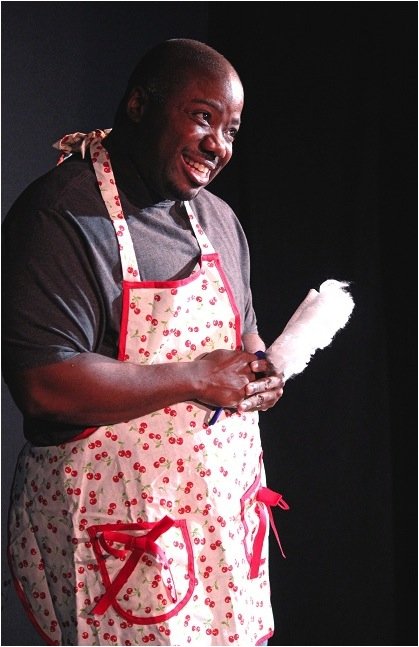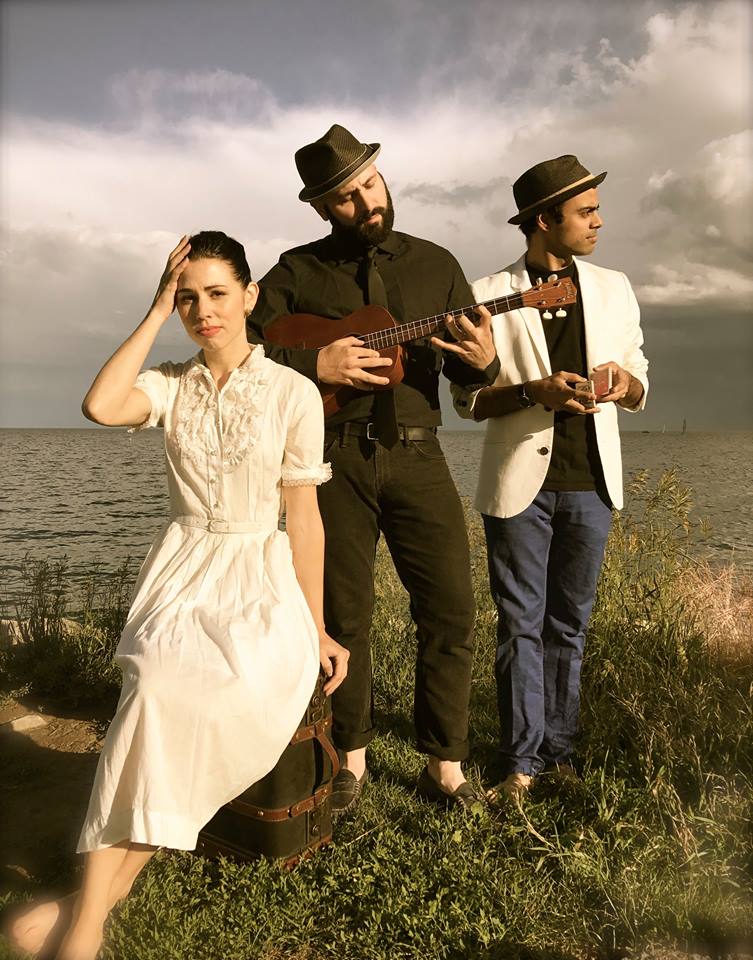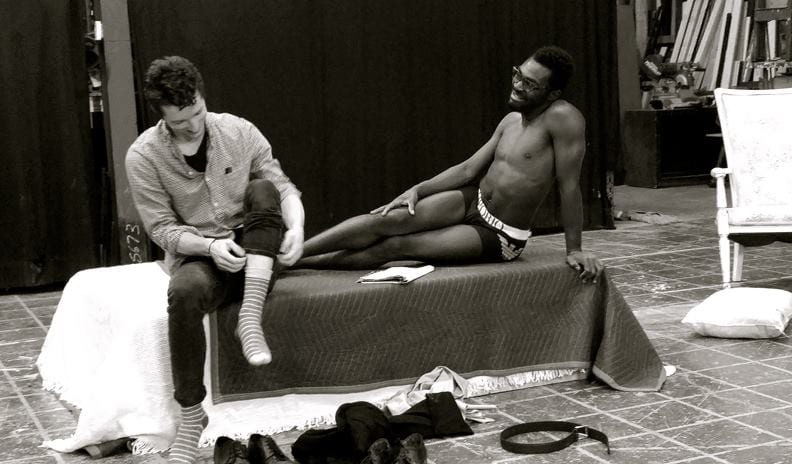Toronto’s summer theatrical free-for-all returns as the fringe festival descends on the city. Featuring more than 160 shows in 34 venues over 10 days, the annual event is a place where anything can and does happen. This year offers a bevy of queer content and Xtra has zeroed in on five productions you’ll want to add to your calendar.
It’s My Penis And I’ll Cry If I Want To

Jamie Black challenges gender roles in It’s My Penis And I’ll Cry If I Want To.
Credit: Courtesy Shepsu Aakhu
Jamie Black’s second solo is a long time coming. The Chicago-based actor/comedian’s monologue Living Inside Myself (which explored his transition) debuted way back in 2004. While his first outing told his story of becoming the man he wanted to be, It’s My Penis aims to deconstruct societal ideas of masculinity — the very thing he was pushing up against during his transition. Though it’s clearly tinged with autobiography, the work is a departure in that he’s playing characters other than himself: men who somehow don’t conform to cultural expectations of manhood.
We meet a mild-mannered college student whose frat brothers are pushing him to “score,” a recent divorcee fleeing an abusive marriage, and a father of three who’s just been diagnosed with a terminal illness. Delivered with wit and sensitivity, the show both questions gender norms and explores the punishments society metes out to those who dare to defy them.

Multiple Organism combines storytelling with projections, masks and puppetry. Credit: Courtesy Mind of a Snail
Vancouver-based queer couple Chloe Ziner and Jessica Gabriel have made a name for themselves with their unique brand of storytelling that incorporates layered projections, masks and puppetry. Past Fringe hits like 2015’s Caws & Effect and 2016’s Curious Contagious were family-friendly fare. Their latest work, however, is decidedly not. After working on a handful of R-rated shorts, the duo decided to make their first full-length, adults-only show last year. The result is Multiple Organism, a bizarre yet humorous journey down a psychosexual rabbit hole. Shadow puppets frolic on naked breasts. A magic paintbrush leads a hero to self-actualization. Sex-crazed toothbrushes chase a woman down a toilet. Created with overhead projectors, cellophane, ink, and found materials mixed with video projections and a physical comedy, it’s a playful exploration of how gender is projected onto us, metaphorically and literally.
The Night Hart Crane Kissed Me

Left to right: Julia Porter, Chai Lavie, Shawn DeSouza-Coelho star in Hart Crane. Credit: Courtesy Christopher Legacy
Shortly before noon on April 27, 1932, Hart Crane downed the last of a bottle of scotch, shouted goodbye to his fellow travellers, and jumped off the deck of a steamship into Gulf of Mexico. The little known queer poet’s suicide was the final act in a storied saga that included numerous back alley flings, considerable violence, and copious amounts of alcohol. He never really got his due during life. But since his death, he’s been lauded by everyone from Tennessee Williams to James Franco.
Inspired by his work and all that was lost with his death, The Night Hart Crane Kissed Me recounts the loose story of Crane’s last 24 hours on earth. Combining vaudeville, cabaret, burlesque, music and magic, it’s a moving and celebratory look at the life of a man who was definitely ahead of his time and paid the ultimate price for it.

The performers in Scat the team explore the often-ignored going-ons in the most private of public spaces. Credit: Courtesy Uniquely Strange Photography
Attention brown-hankie fetishists: we regret to inform you that Scat is not a literal shit show. Instead, the team behind last year’s sold out queer coming-of-age play Eraser set out to explore the violence and shame imparted on women, queers, and gender non-conforming folks in public washrooms. The show began when the team were still students in York University’s devised theatre program. When it came time to allocate spaces for their graduating works, they drew the short straw and ended up in the school’s change rooms.
After some brief discussions of the scatological possibilities their venue offered, their approach quickly became political, influenced in part by Canadian debates around Bill C-16 and anti-trans legislation in the US. From ancient Roman baths to sex stings of gay men to trans guys searching for tampons, the team explore the often-ignored going-ons in the most private of public spaces. And yes, there are fart jokes.

The Seat Next To The King is an imagined encounter in a public washroom between Walter Jenkins and Bayard Rustin. Credit: Courtesy Steven Jackson and Tanisha Taitt
There’s something about the current theatrical zeitgeist that’s made public toilets a pressing topic of discussion. Like Scat, Steven Elliott Jackson’s script also unfolds in a public washroom. But rather than dozens of characters over thousands of years, the show looks at one day in 1964 and two specific individuals: Walter Jenkins and Bayard Rustin. The right hand men of Lyndon B Johnson and Martin Luther King Jr respectively, Jenkins and Rustin were gay and arrested for public sex. The Seat Next To The King is an imagined encounter between the two men in a public restroom. Winner of the Fringe’s annual New Play contest, the show offers a compelling discussion of race, privilege and sex in the pre-Stonewall era; at the same time, it’s a touching portrait of two individuals searching for intimacy.
Toronto Fringe Festival
July 5–16, 2017
Various locations

 Why you can trust Xtra
Why you can trust Xtra


